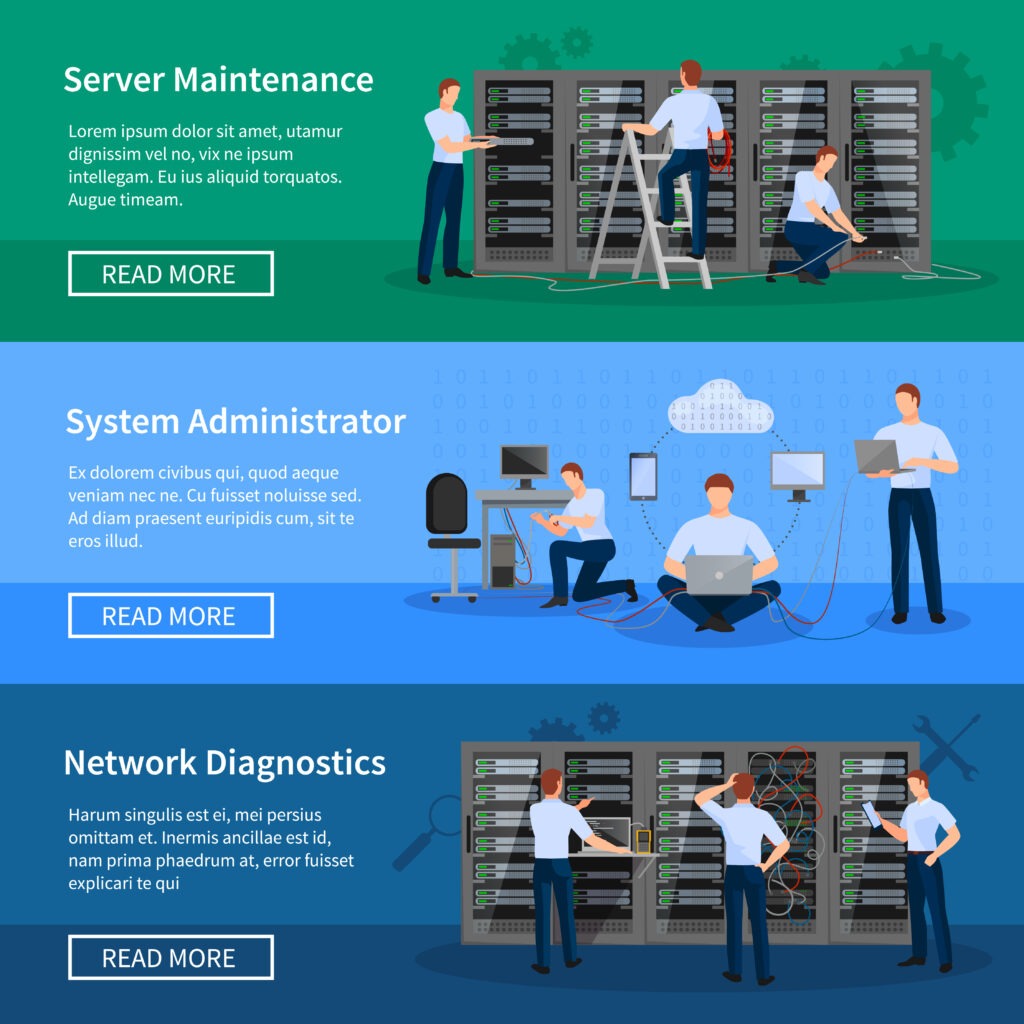Network Engineer Jobs Best Description Template

Are you fascinated by the intricate web of connections that enable our digital world to function seamlessly? The realm of network engineer jobs offers a gateway to becoming a pivotal player in this ever-evolving landscape. Imagine being at the forefront of technological innovation, ensuring that data flows effortlessly across global networks. Dive into a career where every day brings new challenges and opportunities to fortify the backbone of modern communication. Uncover the allure of network engineer jobs, where your expertise can make a monumental impact. Ready to embark on this thrilling journey? Explore the limitless possibilities that await you in the world of networking.
Table of Contents
What is a Network Engineer

A Network Engineer is a pivotal figure in the IT realm, responsible for designing, implementing, and managing computer networks that underpin organizational operations. They ensure seamless data communication, maintain network infrastructure, and troubleshoot complex issues to prevent disruptions. From configuring routers and switches to safeguarding networks against cyber threats, their expertise is indispensable. Network engineer jobs require a deep understanding of network protocols, security measures, and performance optimization techniques. By ensuring robust and secure networks, Network Engineers play a crucial role in the digital age, enabling businesses to operate efficiently and securely.
What are Network Engineer Jobs Responsibilities
Network Engineers are the backbone of an organization’s IT infrastructure, ensuring seamless connectivity and optimal performance. Their responsibilities are multifaceted and encompass a wide range of technical and strategic tasks. Key duties include:
- Designing and Implementing Networks: Creating and deploying network architectures that support the organization’s needs, including LAN, WAN, and cloud networks.
- Maintenance and Monitoring: Continuously overseeing network performance, identifying potential issues, and implementing solutions swiftly to maintain optimal functionality.
- Security Management: Establishing robust security protocols to safeguard the network against cyber threats, including firewalls, VPNs, and intrusion detection systems.
- Troubleshooting: Diagnosing and resolving network problems to minimize downtime and ensure uninterrupted operations. This includes both reactive and proactive measures.
- Upgrades and Optimization: Regularly updating network hardware and software to enhance efficiency, integrate the latest technologies, and scale the network to meet growing demands.
- Documentation: Maintaining comprehensive records of network configurations, changes, and updates, ensuring that all modifications are tracked and easily accessible.
- Collaboration: Working closely with other IT professionals, departments, and external vendors to integrate new technologies and enhance network performance.
- Training and Support: Providing guidance and training to IT staff and end-users on network best practices and new systems.
- Disaster Recovery Planning: Developing and implementing strategies to recover network operations in the event of a failure or disaster.
In the realm of technology, network engineer jobs not only require technical prowess but also a strategic mindset to navigate the complexities of digital connectivity.
IT Professional
Job Brief
Network engineer jobs encompass a vital role in designing, implementing, and maintaining complex network infrastructures. These professionals are tasked with ensuring the seamless operation of communication systems, safeguarding network security, and optimizing performance. They work closely with IT teams to integrate new technologies, troubleshoot issues, and provide technical support. A network engineer’s day-to-day responsibilities involve configuring hardware, monitoring system performance, and implementing robust security protocols. Their expertise ensures that data flows efficiently and securely across the network, supporting the organization’s overall objectives and enabling smooth business operations.
Responsibilities

- Network Design and Implementation: Develop and deploy network architectures, including LAN, WAN, and cloud networks, ensuring they meet organizational needs and are scalable for future growth.
- Performance Monitoring and Maintenance: Regularly monitor network performance, diagnose issues, and implement solutions to ensure optimal functionality and minimal downtime.
- Security Protocols: Establish and manage robust security measures such as firewalls, VPNs, and intrusion detection systems to protect against cyber threats and unauthorized access.
- Troubleshooting: Swiftly diagnose and resolve network issues, employing both proactive and reactive measures to prevent disruptions.
- Upgrades and Optimization: Continuously update network hardware and software to incorporate the latest technologies, enhancing efficiency and performance.
- Documentation: Maintain detailed records of network configurations, changes, and updates, ensuring all modifications are thoroughly documented.
- Collaboration: Work closely with other IT professionals and departments to integrate new technologies and improve network performance.
- Training and Support: Provide guidance and training to IT staff and end-users on network best practices and new systems.
Requirements and Skills
- Educational Background: A bachelor’s degree in Computer Science, Information Technology, or a related field is essential. Advanced degrees or specialized coursework in networking further enhance qualifications.
- Certifications: Industry certifications such as Cisco Certified Network Associate (CCNA), Cisco Certified Network Professional (CCNP), CompTIA Network+, or Juniper Networks Certified Internet Specialist (JNCIS) validate technical expertise and provide credibility in the field.
- Technical Expertise: Proficiency in configuring, managing, and troubleshooting network infrastructure components such as routers, switches, firewalls, and load balancers. Deep understanding of network protocols (TCP/IP, DNS, DHCP) and network management tools is crucial.
- Security Acumen: Knowledge of network security principles, including firewalls, VPNs, intrusion detection/prevention systems, and encryption protocols. Ability to implement and manage security measures to protect against cyber threats.
- Analytical Skills: Strong analytical abilities to assess network performance, identify bottlenecks or vulnerabilities, and propose effective solutions to optimize network efficiency and reliability.
- Project Management: Experience in overseeing network projects from inception to completion, including planning, budgeting, resource allocation, implementation, testing, and documentation.
- Communication Skills: Excellent verbal and written communication skills to articulate technical concepts clearly to diverse audiences. Effective collaboration with cross-functional teams, clients, and vendors.
- Problem-Solving Skills: Proven track record of diagnosing and resolving complex network issues under pressure, minimizing downtime, and ensuring continuous network operations.
- Adaptability and Continuous Learning: Willingness to stay updated with industry trends, emerging technologies, and best practices through ongoing training, certifications, and professional development opportunities.
Conclusion
In conclusion, pursuing a career in network engineer jobs offers a gateway to a dynamic and essential role in today’s digital landscape. As technology continues to evolve rapidly, the demand for skilled network engineers remains robust. These professionals play a pivotal role in designing, implementing, and securing the intricate networks that power businesses globally. With a blend of technical expertise, problem-solving skills, and a proactive approach to innovation, network engineers contribute significantly to organizational success by ensuring reliable and efficient network operations. Embracing this career path opens doors to continuous learning, growth opportunities, and the satisfaction of safeguarding critical digital infrastructures.
The demand for skilled network engineers reflects their critical role in maintaining the backbone of modern enterprises.
Tech Industry Expert
FAQs related to network engineer jobs
- What does a network engineer do? A network engineer designs, implements, and maintains computer networks, ensuring seamless data communication and security.
- What are the typical responsibilities of a network engineer? Responsibilities include network design, troubleshooting, security management, performance optimization, and documentation.
- What qualifications are needed for network engineer jobs? Candidates typically need a degree in Computer Science or related fields, along with certifications like CCNA or CCNP.
- What skills are important for a network engineer? Essential skills include proficiency in network protocols, troubleshooting abilities, security expertise, and strong communication skills.
- How do network engineer jobs contribute to organizational success? Network engineers play a crucial role in maintaining reliable and efficient network infrastructures that support business operations.
- What career growth opportunities exist for network engineers? Network engineers can advance to roles such as network architects, cybersecurity specialists, or IT managers, depending on their expertise and experience.
- What industries typically hire network engineers? Industries such as telecommunications, finance, healthcare, and technology companies heavily rely on network engineers to manage their IT infrastructures.
- How can one prepare for a career in network engineer jobs? It’s advisable to pursue relevant education, gain hands-on experience through internships or entry-level positions, and obtain industry certifications to enhance credibility.





2 Comments